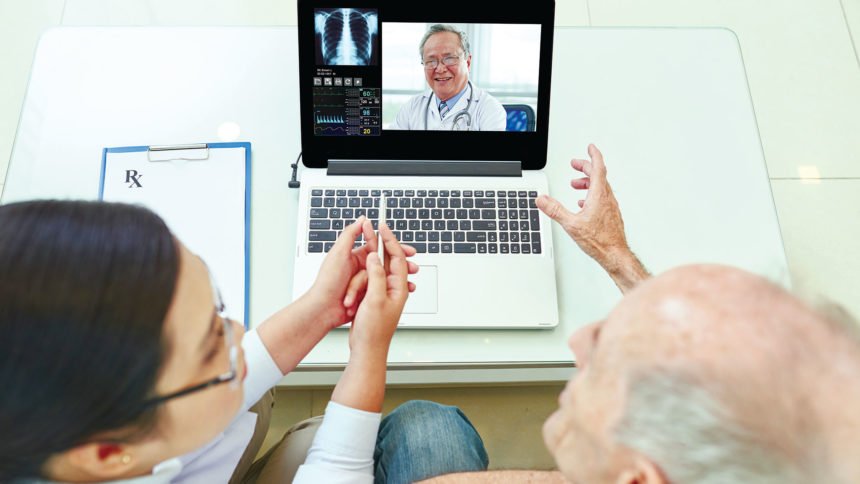
Remote coaching by academic medical experts can improve geriatrics expertise among skilled nursing employees, a University of Chicago study has found.
SNF caregivers often lack the needed background and skills to care for complex residents, study authors noted. In an attempt to address this issue, they piloted the use of a secure, web-based videoconferencing technology to teach employees at seven facilities on Chicago’s South Side about geriatric care principles.
The 10-week initiative involved ongoing mentoring and consultation with geriatric medical experts through the Extension for Community Healthcare Outcomes (ECHO) platform. The curriculum was designed to help SNF employees more easily distinguish between typical signs of aging and symptoms that may be associated with other health problems and generate a treatment plan for the management of dementia in geriatric patients, among other things.
The authors found statistically significant increases in participants’ self-efficacy to treat patients with dementia, educate patients about hospice and palliative medicine, and manage infections in seniors, according to the study’s findings, which were published in April’s Geriatric Nursing.
“This is a great way to provide training to a staff that is oftentimes highly in need of additional training in a way that can be accomplished without disrupting their workflow overly much,” said Katherine Thompson, M.D., study co-author and a geriatrician at the University of Chicago.
She noted that SNF social workers and nurses are often under-trained and overwhelmed. It’s a problem facing SNFs across the country, due to a national shortage of specialty and primary care providers.
Participants filled out surveys before and after the pilot, with findings showing an improvement in geriatric know-how following the initiative.
From the June 6, 2019 Issue of McKnight's Long-Term Care News




